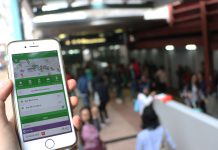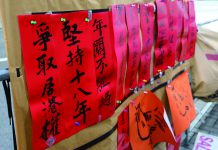November 2017 – Out of sight, out of mind
A rare spotlight has been shone on prison life lately, a result of so many prominent Hong Kong figures behind bars or facing prison...
Rough Justice
After years of suffering in silence, former juvenile offenders are speaking up about alleged abuse by prison officers in Hong Kong's detention centres for young offenders. They say the current complaints system for reporting cases of abuse is ineffective and lacks independence.
One Country, Two Prison Systems
Hong Kong people who are detained in the Mainland find themselves grappling with unfamiliar legal, judicial and prison systems, and with little or no help from Hong Kong authorities.
Women on the Inside
Hong Kong has the highest ratio of women as a percentage of the prison population in the world. Varsity takes a look at the plight of female prisoners, including those incarcerated with their babies and those who may be human trafficking victims.
April 2017 – Information and its Discontents
We live in a post-information revolution age where we are deluged with information and data. How we make sense and make use of this information presents complex challenges. This issue of Varsity explores some of the complex issues around information in our society today.
Files Not Found
Despite lobbying from archivists and activists, Hong Kong still doesn't have an archives law, which means the government can casually destroy documents or fail to keep records of internal communications. When it comes to researching Hong Kong's history, scholars, journalists and members of the public are forced to rely on Britain's national archives.
Not So Open Data
Hong Kong currently ranks 37 among 97 countries in the Open Data Index but the city has set ambitious goals to be 'smarter'. But without legislating for access to information, and without providing data in friendlier fomats, those ambitions will be hard to realise, say open data advocates.
Watching me, watching you
The government is allowed to intercept and carry out surveillance on private citizens in the name of public security and there are laws to regulate the snooping. However, critics say the regulations are out-of-date in the digital age and existing safeguards are insufficient to protect citizens' privacy rights.
March 2017 – Twenty Years Later
This year marks the 20th anniversary of the handover of Hong Kong's sovereignty from Britain to China in 1997. That was the year in which most of the reporters working on this issue of Varsity were born. In Periscope, we take a look back on some of the issues that have shaped Hong Kong in the past 20 years.
Divided families, divided identities
On the first working day after the handover on July 1st 1997, the mainland-born children of Hong Kong permanent residents lined up to claim residency rights under Article 24 of the Basic Law, kicking off a years-long struggle known as the right of abode saga. The impact of the legal battles and discourse over mainland new arrivals affect us even today.















































